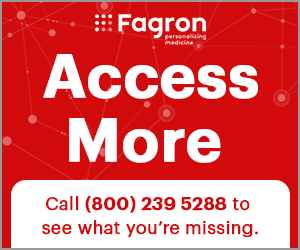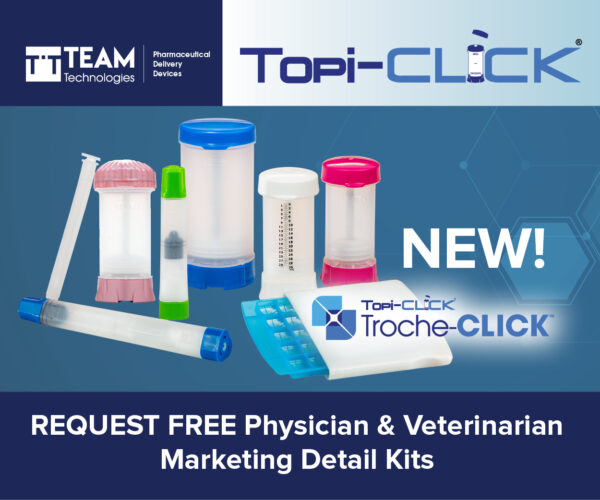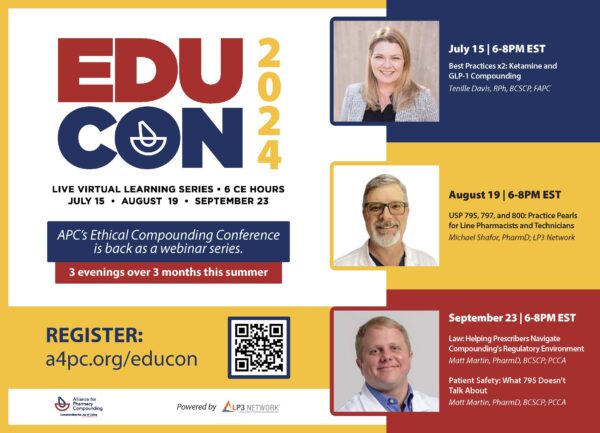
Every month, APC offers a live webinar on a hot topic in compounding, presented by an expert (or experts) in the field. From reading a COA to cybersecurity threats, legal issues to consumer demand, you’ll find fresh, timely education in live APC webinars.
Most live courses become available on-demand about a week after the live presentation.
To see a listing of our live and on-demand webinars hosted by LP3 click here.
On-demand education
We know you’re not always able to take a continuing education course at a specific time and date. That’s why APC also offers our live courses on-demand. Although you can’t ask questions in real time, you get the same CE credit, and you can take the class anytime, anywhere, and review the video as often as you like.
On-demand versions of our live courses usually become available about a week after the live presentation.
Telemedicine 2024 – Compliance for Compounders
Speaker: Mark D. Boesen, PharmD, JD
his webinar focuses on recognizing the latest legal requirements and best practices for pharmacies when filling telemedicine prescription orders in 2024. The webinar will provide pharmacists and pharmacy professionals with essential knowledge and practical insights to navigate the evolving landscape of telemedicine regulations.
Through interactive discussions and case studies, participants will delve into the intricacies of telemedicine laws and their impact on pharmacy operations. Led by an experienced practicing pharmacist and practicing pharmacy attorney specialist, this webinar will cover federal and state-specific regulations governing telemedicine prescription orders, including authentication procedures, documentation standards, and compliance with controlled substance regulations.
click here to register
Soft Skills for Hard Jobs
Speaker: Patricia Douglas, RPh, FACVP, FAPC
This webinar aims to explore how to recognize and develop personal attributes used to influence and enhance the way pharmacists communicate and relate to patients, caregivers, colleagues and peers.
click here to register
Vet GFI #256 One Year Later: Where Are We?
Speaker: Meghann Abbott, CVT
Since the FDA’s GFI #256 went into effect on April 1, 2023, the landscape of veterinary medicine has seen significant changes. As we reach the one-year mark, this activity will examine the enforcement and compliance of guidance and its impact on veterinary practice. This webinar offers a comprehensive overview of FDA GFI #256, detailing its key provisions, the medications listed under the guidance, and the veterinary community’s response.
Participants will gain valuable insights into the nomination process, learning effective strategies to encourage veterinarians to support bulk drug nominations. Furthermore, the webinar will provide an in-depth look at what to expect during an FDA inspection and share best practices for ensuring that compounding pharmacies meet compliance requirements under GFI #256. This session is an essential guide for professionals seeking to navigate the evolving regulatory landscape in veterinary medicine.
CLICK HERE TO REGISTER
Demystifying the DSCSA for Compounders
Speaker: Josh Bolin (NABP)
This webinar gives pharmacies and small wholesalers the information they need to know to be compliant with Drug Supply Chain Security Act (DSCSA) regulations, including the impact on compounding pharmacies, information on FDA’s stabilization period, authentication of vendors, changes to bar coding (2D bar codes), and product tracing and product information.
CLICK HERE TO REGISTER
Patient Communications—Are You HIPAA Compliant?
Speaker: Denise Frank, RPh, FACA, FAPC
Your pharmacy may have email addresses and cell phone numbers for your customers and patients as their preferred communication forms, but is this HIPAA compliant? Could you also send out texts and emails about your pharmacy and new services?
For social media, emails, and texting, it is even more difficult to determine if communications are HIPAA compliant. The CAN-SPAM Act and the TCPA (Telephone Consumer Protection Act) also play a role for emails and phone/text messages. An additional consideration are voice assistants (e.g. Siri, Alexa) and whether they are “listening” when you are talking to patients or when working from home.
This webinar reviews HIPAA and HITECH requirements, defines what is considered PHI (Protected Health Information), discusses communicating with patients in their preferred format (including the requirements), and explores the considerations when marketing with customer phone numbers and email addresses.
CLICK HERE TO REGISTER
Survey of State Compounding Law Changes 2023 and Proposed 2024
Speaker: David A. Kosar
Federal policy affects your compounding practice; however, not nearly as much as state laws and regulations. Pharmacy standards and requirements are guided by regulations and laws in every state, with every jurisdiction also playing a role, including expiration dates for products, requirements for secure storage, recordkeeping, and more.
Compounding laws and regulations in states across the US saw the adoption of some significant changes during 2023—so, what does 2024 hold?
This program provides an overview of 2023 adopted changes in compounding laws and regulations across the US and highlights proposed changes currently in the 2024 sessions.
CLICK HERE TO REGISTER
Compounding Pharmacy Medication Errors – What the Data Says
Speaker: John M. Kessler, B.S. Pharm, PharmD
An effective pharmacy quality assurance (QA) program is more than simply reporting errors and close-calls. The sweet spot for a compounding pharmacy is to have management’s total buy-in, employees who embrace safety as part of the job, and basic tools to assess improvement. The important goals are to shift your team’s focus from 1) errors to harm; 2) individual heroism to group risk mindfulness; and 3) fixing problems to preventing problems.
This program will take a 360 degree view of key strategies that assure your safety program is comprehensive, pragmatic, and effective. The presentation will help you ensure your program is designed to 1) actively identify risks, 2) manage events to minimize harm and maximize learning, and 3) prevent future harmful events.
CLICK HERE TO REGISTER
USP 797 and Automation
Speaker: Melissa Stefko
The latest revisions to USP <797> have brought about substantial reductions in both batch sizes and the allowable duration for compounded sterile drug use beyond their initial preparation.
These restrictions necessitate a greater degree of manual handling and intervention and present a challenge for the seamless integration of automated manufacturing equipment, originally designed for larger batch compounding with minimal human involvement.
In this webinar, Melissa Stefko delves into the intricacies surrounding the reduction of batch sizes and the revised beyond-use dating requirements, and examines their impact on current industry standards pertaining to automation practices.
Click here to register
Internal Audit Processes – Facilitating Optimal Operations and Compliance
Speakers: Jon Pritchett, PharmD, RPh, BCSCP, and Nancy Fingerhut
Internal auditing plays a key role in ensuring quality in operations, efficiencies, and compliance in compounding pharmacies.
This presentation will address concepts related to developing an internal audit process, conducting an audit, and using the results of the audit to improve organizational performance.
Click here to register
USP <797> Best Practices – It’s Not Just SOPs (Part 2): From Cleaning to Packaging, Handling, Stability, Documentation, & Quality Assurance/Control
Speaker: Amy Summers, PharmD
In a survey of best practices in over 600 compounders, only little more than half indicated to define and always follow standard operating procedures (SOPs) during sterile compounding processes (ISMP, 2020). While SOPs are crucial to ensuring best practices in sterile compounding, they are often times not regularly reviewed and updated to reflect areas experiencing significant change or new regulations to remain compliant with USP Chapter <797>.
This activity aims to highlight key areas of sterile compounding practices that are important to recognize as best practices to implement in your SOPs in order to remain compliant with USP <797>. In Part 1 of this 2-Part series, Amy Summers, PharmD, BCSCP, highlights best practices in your personnel, facilities, equipment, cleaning, and processes for sterile compounding.
Click here to register
USP <797> Best Practices – It’s Not Just SOPs (Part 1): From Personnel to Facilities, Equipment, Cleaning, and Processes
Speaker: Amy Summers, PharmD
In a survey of best practices in over 600 compounders, only little more than half indicated to define and always follow standard operating procedures (SOPs) during sterile compounding processes (ISMP, 2020). While SOPs are crucial to ensuring best practices in sterile compounding, they are often times not regularly reviewed and updated to reflect areas experiencing significant change or new regulations to remain compliant with USP Chapter <797>.
This activity aims to highlight key areas of sterile compounding practices that are important to recognize as best practices to implement in your SOPs in order to remain compliant with USP <797>. In Part 1 of this 2-Part series, Amy Summers, PharmD, BCSCP, highlights best practices in your personnel, facilities, equipment, cleaning, and processes for sterile compounding.
To access Part 2 of this 2-part series, click here.
Click here to register
Business Valuations – Myths, Methodologies and Planning Ahead
Speaker: Mike Tarrant, CFP®, CEPA
Knowing your compounding pharmacy’s true worth is often times overlooked due to the primary focus of ensuring optimal patient care and ongoing management of your business. The perceived barriers to business valuations can also deter pharmacy owners, leaving them at risk of undervaluing their business when planning ahead (i.e. selling, retirement) or neglecting to make ongoing improvements that could further increase business value in the future.
Join financial planner Michael Tarrant, CFP, CEPA, as he explores and aims to shed more light on the importance of knowing the value of your business early on, demystifying the complexities of business valuation, and how to perform a valuation to efficiently and accurately know the worth of your compounding pharmacy business so that you can make informed financial decisions.
CLICK here to register
Leveraging Technicians to Improve Pharmacy Operations
Speaker: Kristen Jones, PharmD
Maximizing the potential of your pharmacy technicians can help improve operations, from consistent compliance checks, to designated person duties, to overall operations. Providing additional duties and career advancement opportunities can also help with retention and burnout prevention. However, how can you implement their advancement into the practice and properly insure with these additional duties?
This activity explores the advanced roles and responsibilities of pharmacy technicians, and further highlights the state requirements, risk management ideas for implementation, and recognizing the importance of liability insurance reflective of the advanced roles.
Click here to register
Trends in Veterinary Pharmacy: What Compounders Need to Know
Speaker: Natalie Young, PharmD, FACVP
In this session will review some common compound prescriptions encountered for non-human patients and how to practice evidence-based medicine during formulation selection for these unique patients. We will also review the latest regulatory updates and even add some new ideas to your compounding toolbox!
Click here to register
IV Nutrition in Compounding
Speaker: Casey Greene, PharmD, IFMCP
Compounders today often struggle with understanding the complexities of IV nutrition. Where to start? What nutrients do what? Are they effective? Are they safe? Are they compatible? What to mix them in? How should they be given? Then there’s no shortage of regulatory issues to worry about.
In this activity we’ll cover all those questions and more, from the basics of IV nutrition in compounding to more advanced topics that most have never heard of. You should walk away with a good basic understanding of where to start.
Click here to register
Compounding for Women’s Health Conditions
Speaker: Tara Thompson, PharmD
Oftentimes, commercially available products not designed for vaginal use are prescribed for this intention. However, the vaginal mucosa and surrounding vulvovestibular area is a sensitive and delicate region requiring specialized preparations designed for vaginal use. Inert ingredients, preservatives, bases used, and pH must all be taken into account with medications that are prescribed for vaginal application. Therefore, identifying what is appropriate for vaginal use, especially when it comes to nonsterile compounding, is needed among compounding pharmacists.
This webinar will explore vaginal anatomy, the need for vaginal preparations, and specific parameters to take into consideration when designing vaginal drug preparations.
Click here to register
Making the Case for Advanced Pharmacy Technicians
Speaker: Liza Chapman PharmD, FAPhA
Challenges with recent shifts in the role of pharmacists from foundational pharmaceutical care to clinical, and direct patient care roles in both inpatient and community pharmacy settings have led to an advancing function of the pharmacy technician.
This activity aims to set the case on the roles of the advanced pharmacy technicians. It will describe the role of conventional pharmacy technicians and how it is impacted by the regulatory landscape. Through evidence-based research, the activity will illustrate how pharmacies and the healthcare system benefit from advanced pharmacy technician roles, such as in compounding. Practice settings for advanced pharmacy technicians will also be identified.
click here to register
Compounding Health – As an “Adjunct to Diet and Exercise”
Speaker: Kathy Campbell, PharmD
Over 50% of the US population lives with a chronic health condition and 70% are overweight or obese. Modern pharmaceutical therapies used to treat these conditions are only approved for use and deemed effective as an “adjunct to diet and exercise.” While these lifestyle strategies are critical for optimizing foundational metabolic function and achieving sustainable therapeutic outcomes, who is helping the patient personalize and implement these critical lifestyle components?
The compounding pharmacist is trained to create personalized therapeutic solutions and is uniquely situated to assist patients with these challenging pieces of the health puzzle. This webinar will address the role pharmacists play in optimizing metabolic function, the critical components of a pharmacist-led lifestyle program, and the opportunities these strategies have for your pharmacy business and patients.
click here to register
The Cost of Non-Compliance: DUR and Regimen Review
Speaker: L. Rad Dillon, RPh
Non-compliance of the Omnibus Budget Reconciliation Act of 1990 (OBRA-90) can come at a cost to the compounding pharmacist. The OBRA-90 was largely created to reduce the US budget deficit by improving therapeutic outcomes. However, the means by which these savings were realized has ultimately impacted healthcare, notably the pharmacist through prospective drug utilization review (DUR) requirements, patient counseling responsibilities, and record-keeping duties.
This webinar aims to facilitate compounding pharmacists in remaining compliant with OBRA-90 pharmacist obligations by navigating the elements and requirements of the DUR (prospective, concurrent, retrospective), patient counseling (including medication guides), and correct and effective document recording.
Click here to register
Planning, Saving, Investing, and Retiring Strong
Speaker: Mike Tarrant, CFP®
Building up funds in advance and over time is a precautionary and necessary action to prepare for the unexpected and expected. However, given the plethora of responsibilities placed upon compounding pharmacists, financial planning continues to be a challenge. Moreover, for many pharmacists, effective financial planning for retirement remains a barrier, given that help from their employers for saving toward retirement is not an option, especially for those who own and run their own independent pharmacies.
This webinar focuses on saving and beginning investing for your future, for retirement, for come what may, and why starting early makes a big difference.
Click here to register
Survey of State Compounding Law Changes – 2022 and Proposed 2023
Speaker: David A. Kosar, Esq.
Federal policy affects your compounding practice; however, not nearly as much as state laws and regulations do. Pharmacy standards and requirements are guided by regulations and laws in every state, with every jurisdiction also playing a role, including expiration dates for products, requirements for secure storage, recordkeeping, and more.
Compounding laws and regulations in states across the US saw the adoption of some significant changes during 2022—so, what does 2023 hold?
This activity aims to re-cap 2022 adopted changes in compounding laws and regulations across the US and highlight proposed changes currently in the 2023 sessions.
Click here to register
Pharmacy Finance 101: A Guide to Key Financial Elements to Facilitate the Success of Your Pharmacy
Speaker: Scotty W. Sykes, CPA, CGMA
Pharmacy practice has evolved into a dual role of a provider of healthcare as well as a business to ensure longevity for continual patient care while maintaining profitable outcomes. Understanding your financial information is, therefore, a key fundamental pillar of a successful pharmacy.
This webinar will discuss the key aspects of pharmacy accounting, financial statements, and key performance indicators that you need to know to maximize your bottom line and understand your pharmacy. This webinar will also touch on key tax strategies that you need to consider to help minimize your tax liability and improve your cash flow.
click here to register
How to Use Medical Literature to Identify and Support Compounded Therapies
Speaker: Nat Jones, RPh, FAPC
In a world of one-offs how do you develop a compounded treatment formula? It is essential to start with knowledge of the disease state, understanding the biology & pathophysiology involved and what are the pharmacologic therapeutic targets or goals.
The best place to obtain the most current knowledge on these topics is medical literature in both journal and text publications. The internet has brought the explosion of world’s scientific literature to our fingertips, but how do you decide what is fact from fiction or just bad science?
Click here to register
Research and Development Tax Credit
Speakers: Heather Fisher, Business Development Manager, Software & Pharmaceuticals and Dawson Fercho, Partner and VP of Business Development, CTA, Inc.
Does your compounding pharmacy qualify for tax credits? What tax incentives can be applied to your pharmacy? These questions if overlooked or not fully investigated, may hinder pharmacies taking full advantage of tax credits/incentives.
While Research & Development (R&D) incentive programs exist for compounding pharmacies, many pharmacies are not familiar with the extent to which they can benefit from R&D incentives. Recent laws surrounding the Employee Retention Credit (ERC) may also provide further tax incentive opportunities.
This webinar explores tax incentives for the compounding pharmacy, with a focus on the R&D tax credit and ERC and real-life case studies as examples. Whether you are a well-established pharmacy or just starting up, this activity is a must-see to help guide you to reduce your taxes, save, and grow.
Click here to register
Can You Compound That? A Quiz Show
Tenille Davis, PharmD, RPh, BCSCP, FACP
In addition to ensuring whether the compounded prescription is appropriate for the particular patient, determining whether the preparation itself can be compounded is part of the daily decision-making process faced by compounding pharmacists and pharmacy technicians.
Set in a game show style format, this fun and interactive webinar aims to enhance your knowledge on which active ingredients can (and can’t) be compounded, as well as guidance on general recommendations on facilitating decisions on whether to compound a preparation.
Click here to register
Keeping it Legit: Best Authentication Practices for Compounders, PART II – WHOLESALE DISTRIBUTORS
Denise Frank, RPh, FACA, FAPC
This activity aims to uncover how pharmacists can identify the potential sale of counterfeit, stolen, contaminated, or harmful drug products from wholesale distributors, and what do in these situations.
The program will explore the regulations set forth by the Drug Supply Chain Security Act (DSCSA) that protects drug product integrity and security; risky situations; diversion of products outside the supply chain (i.e., can you sell products to a wholesaler?); counterfeits/adulteration/misbranding; maintaining product integrity; how to authenticate suppliers (initial and ongoing); red flags, and more.
click here to register
Keeping it Legit: Best Authentication Practices for Compounders, PART I – PROVIDERS AND PRESCRIPTIONS
Kathy A. Salinas, PharmD
This program aims to describe optimal approaches to validating legitimate prescriptions by exploring interactions with the prescriber such as verifying a valid doctor–patient relationship, prescriptions that are within their scope of practice, treatments that are individualized, among others. This activity will also explore controlled substance prescriptions, with a focus on a “Red Flags” Checklist for pharmacies to facilitate professional judgment on the legitimacy of such a prescription.
CLICK HERE TO REGISTER
Hazardous Drug Decontamination – Understanding its Purpose and Validating Best Practices
Abby Roth
This activity aims to clarify the purpose of decontamination of non-sterile and sterile preparations by exploring the differences between deactivation, decontamination, cleaning, and disinfection, as well as discussing appropriate agents for the decontamination of HD on surfaces. Under a practice setting, the program will also explore the importance of verifying processes and agents for decontaminating, while discussing procedures for validating effective HD decontamination.
Click here to register
20 Questions: Selecting the Right Compounding Software for Your Practice
Alexander Pytlarz, PharmD
This program will explore the different facets of compounding pharmacy management (e.g., inventory management, compliance, master formulations) through a series of 20 compounding management-specific questions that will help facilitate the decision-making process when you are selecting the best compounding software for your practice.
Click here to register
503A Compounding for Shortages
Shawn Hodges, PharmD; Kathleen Kane, PharmD, BCSCP, DPLA; Karla Palmer, Esq.
This program will focus on recent involvement with Federal, State, County, and 503B stakeholders, as well as with drug shortage lists and the impact of the FDA’s temporary guidance during the COVID-19 pandemic to illustrate the extent to which 503A pharmacies can help patients receive the medications they need.
Click here to register
Compounded Thyroid: How to Start the Conversation With Your Provider
Michelle Moser, RPh
Commercial thyroid products simply don’t work for every patient. Whether it’s dosage limits, allergies, or other issues, you’re going to have to explain to prescribers why compounded thyroid is often the best option for a patient.
Learn to educate them (and your patients), and pick up some important best practices for working with thyroid options.
Click here to register
BUDs & Stability Studies Under the Proposed New USP Chapters
Mindy Cormier, PharmD, R.Ph.
Beyond-use dates have become a hot topic for compounding pharmacists. This session will review the discussion surrounding non-sterile and sterile beyond-use date appeals, and the importance of beyond-use dating for facilitating workflow efficiencies and patient access to personalized medicine. New requirements for default and extended beyond-use dating according to proposed USP <795> and <797> will be included, as well as what to look for in a stability-indicating study. Attendees will learn how to apply professional judgment in extrapolating stability data for extending beyond-use date.
CPE was originally part of EduCon 2022.
Click here to register
USP: Minor Chapters, Major Impacts
Brian Kelley
In this session, our speaker will outline regulatory considerations for USP Chapters and FDA guidelines, and explain USP <61> and USP <62> tests and how they determine if non-sterile products meet quality requirements. The significance of USP <51> preservative-effectiveness testing in compounding, the importance of a container closure system for a drug product, and the test requirements for compounded preparations in USP <1163> will be detailed as well.
CPE was originally part of EduCon 2022.
Click here to register
The Biopharmaceutical Classification System: What You Should Know
Vanessa Pinheiro, Pharmacist Consultant
This session will look at the classes of the Biopharmaceutical Classification System (BCS) and the importance of drug dissolution for absorption after oral administration of solid dosage forms. Excipients that could impact the dissolution of active pharmaceutical ingredients (APIs), considerations for formulation development when compounding from an API or an existing drug product, and literature related to the BCS and compounding pharmacy will be included.
CPE was originally part of EduCon 2022.
Click here to register
USP <797> BUDs: An Update
Connie Sullivan
USP Chapters have recently undergone several changes, including standards for beyond-use dates. Our speaker will review USP’s process for standard creation, summarize the revisions proposed for USP <797> and discuss the next steps for the chapters. Attendees will learn where to find the proposed revisions to the chapters and the supplementary materials.
CPE was originally part of EduCon 2022.
Click here to register
USP <795> BUDs: An Update
Gus Bassani, PharmD
USP Chapters have undergone much change in recent year, including standards for beyond-use dates. Our speaker will review USP’s process for standard creation, summarize the revisions proposed for USP <795> and discuss the next steps for the chapters. Attendees will be provided with information on where to find the proposed revisions to the chapters and the supplementary materials.
CPE was originally part of EduCon 2022.
Click here to register
Implementing Pharmacogenomic Testing in Your Practice
Peter Clapp, Ph.D. and Lisa Faast, PharmD
Adding pharmacogenomic testing to your pharmacy practice can increase revenues and improve patient outcomes. This session will include a review of single nucleotide polymorphisms (SNPs) in pharmacogenetic analyses and the possible consequences of metabolic enzyme polymorphism on drug disposition. You will learn how to identify potential patients for PGx testing, recognize compensation models for PGx services, and how to market this service to grow your pharmacy.
CPE was originally part of EduCon 2022.
Click here to register
R&D Roundtable: How Compounders are Aiding Medical Research
Facilitator: Alexander Pytlarz, R.Ph.; Panelists: Linda McElhiney, R.Ph.; Joe Navarra, R.Ph.; and David Mastropietro, R.Ph., Ph.D.
There is a wide range of medical research projects in which compounders are engaged and can be engaged. Our panel of speakers will provide attendees with an understanding of the research protocols under which compounders can engage in supporting medical research projects and explain how to cultivate relationships with medical research and identify R&D opportunities related to compounding.
CPE was originally part of EduCon 2022.
Click here to register
Cultural Competency & Bias Training
Denise Frank, BPharm, R.Ph., FACA
The Affordable Care Act’s Section 1557, “Nondiscrimination in Health Programs and Activities,” was created to reduce disparities in health care and prohibits discrimination on the basis of sex in federally funded health programs. This session will provide examples of discrimination, and review key provisions of the rule, including enforcement and consequences of noncompliance. Attendees will learn how to recognize types of discrimination and develop a plan for their work setting to become compliant.
CPE was originally part of EduCon 2022.
Click here to register
Compounder Ethics: The Code as Compliance Strategy
Barbara Exum
This session will review the new code of ethics adopted by Alliance for Pharmacy Compounding, The Pharmacy Compounding Professional’s Code of Ethics. Characteristics of ethical behavior in the practice of pharmacy and ethical principles as they relate to compounders will be included. Our speaker will also describe frameworks used in ethical decision-making that you can use when confronted with ethical dilemmas.
CPE was originally part of EduCon 2022.
Click here to register
Veterinary Compounding: Considerations & Clinical Pearls
Deborah Clark, R.Ph.
Compounding for veterinary patients requires special considerations when choosing a route of administration and dosage form for a given species. Our speaker will provide an overview of toxicities to consider when choosing a commercially available drug product or when formulating a compounded product, as well as appropriate dosage forms for the canine, feline and equine patient. Unique dosage form options that may give a better therapeutic outcome in certain species will be included.
CPE was originally part of EduCon 2022.
Click here to register
When the DEA Comes Calling: Preparing for and Managing that Inspection
Larry Houck
What do you do when the Drug Enforcement Administration (DEA) inspector shows up at your pharmacy? What is the extent of DEA inspection authority and what enforcement actions can occur? This session will help you prepare for and know what to expect during a DEA inspection, including do’s and don’ts, policies and procedures, and the importance of conducting a post-inspection mirror audit.
CPE was originally part of EduCon 2022.
Click here to register
Neuroinflammatory disorders 

Jim Hrncir and Ashley Berthelot
Explore innovative protocols and opportunities to optimize outcomes for patients suffering from debilitating neuroinflammatory disorders. Paired well with discussions on provider outreach tactics and how to best educate providers on the clinical mechanisms behind these protocols — this program will open the doors to new possibilities.
Click here to register
Controlled Substances & the Corresponding Responsibility of the Pharmacist and Pharmacy Technician
With Erika Fallon, PharmD, RPh
The DEA’s recently revised “Pharmacist Manual” states, “To be valid, a prescription for a controlled substance must be issued for a legitimate medical purpose by a practitioner acting in the usual course of professional practice. The practitioner is responsible for the proper prescribing and dispensing of controlled substances, but a corresponding responsibility rests with the pharmacist who fills the prescription.”
Compounding pharmacists may find themselves uniquely vulnerable to enforcement action and penalties provided for violations of the provisions of law relating to controlled substances. 21 U.S.C. 841(a)(1) and 21 CFR 1306.04(a). Specific challenges include “off-label” usage of controlled substances, novel therapies that are not well established in scientific literature, and unreliable information regarding what other medications patients are taking. This program seeks to educate and equip pharmacists and pharmacy technicians on best practices and strategies to ensure compliance, including recognizing red flags, patients with substance abuse disorders, over-utilization, documentation of diagnosis, and checking the Prescription Drug Monitoring Program (PDMP).
Click here to register
Some Hot Topics Concerning Hazardous Drugs 
With L. Rad Dillon, RPh
Despite being available for review for a number of years, confusion and misunderstandings remain concerning USP <800>, especially regarding certain key topics. This presentation will examine two such topics, personal protective equipment and cleaning & disinfection, in a manner that makes the requirements understandable and easy to apply. Material will be organized in an easy-to-understand fashion, making use of tables, charts, and key takeaways. With the official implementation of proposed USP <795> and <797>, as early as a few months away, inspection-ready compliance with USP <800> will be required for all States governed by USP standards, if not already required.
Click here to register
HVAC and Cleanroom Workflow
With Bryan Prince, MBA
One of the most important criteria for the success of a compliant sterile and/or nonsterile compounding room is the HVAC system. USP and ISO have minimum particle count classifications, as well as air changes per hour requirements which are foundational to certifying a cleanroom. Additionally, people and process generate heat and seasons change, all of which affect the performance for the HVAC system connected to the cleanroom. During this presentation, we will clearly define how to design an appropriate HVAC system, taking into account compounding workflow considerations.
Click here to register
Surviving an Inspection
With Melissa Stefko, MBA
In this activity, we will discuss how to prepare for and what to expect during an inspection. We will cover firm’s rights during an inspection, common inspection techniques used by auditors and appropriate responses. Additionally we will go through common items investigated as well as common investigational findings in compounding pharmacies. Lastly, we will also cover how to write an effective response to the regulatory agency.
Click here to register
Even more courses
Through partnerships with LP3 and SeminarWeb, APC offers additional on-demand continuing education classes related to pharmacy compounding from APC and other publishers.
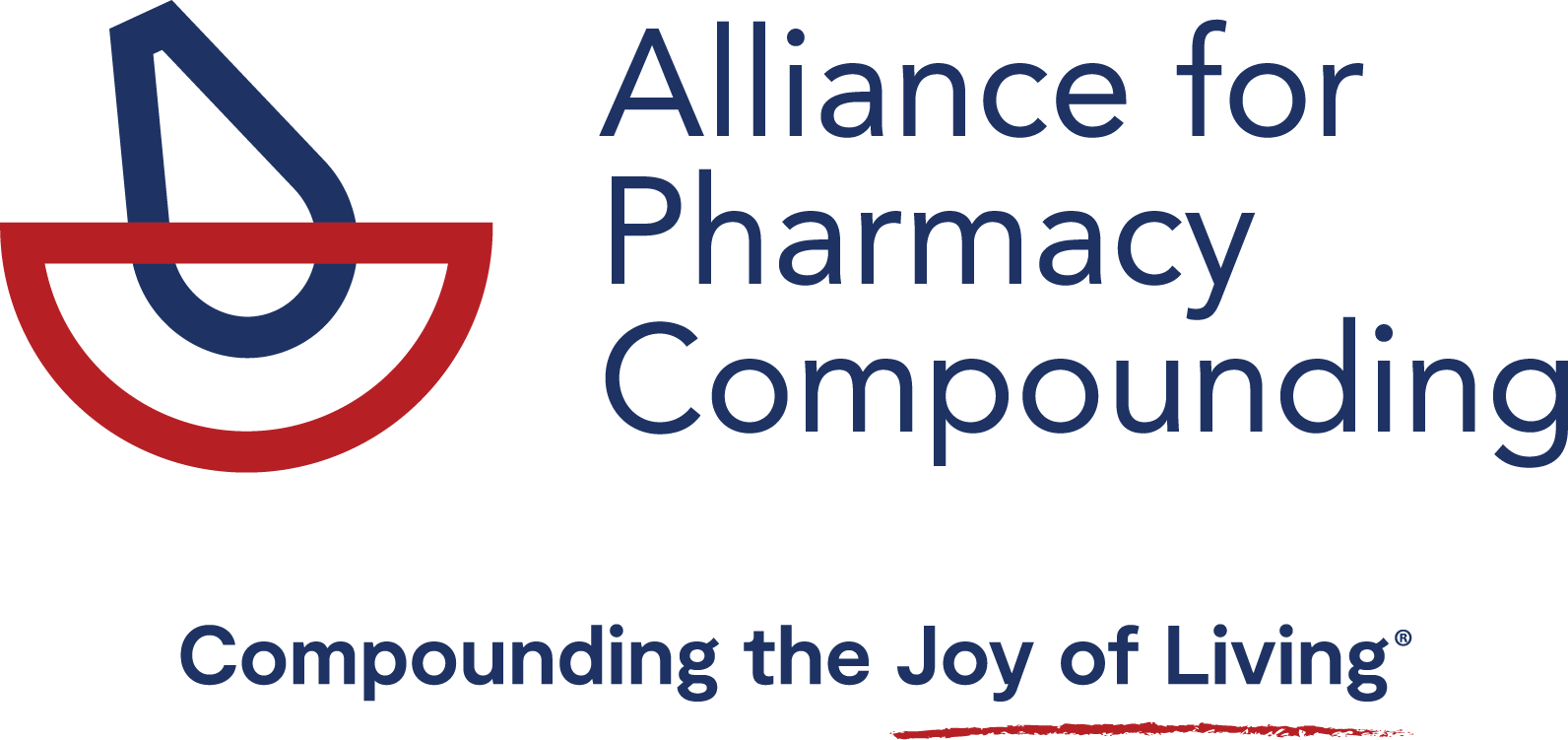




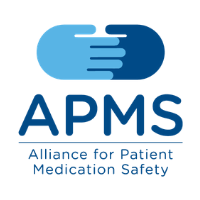




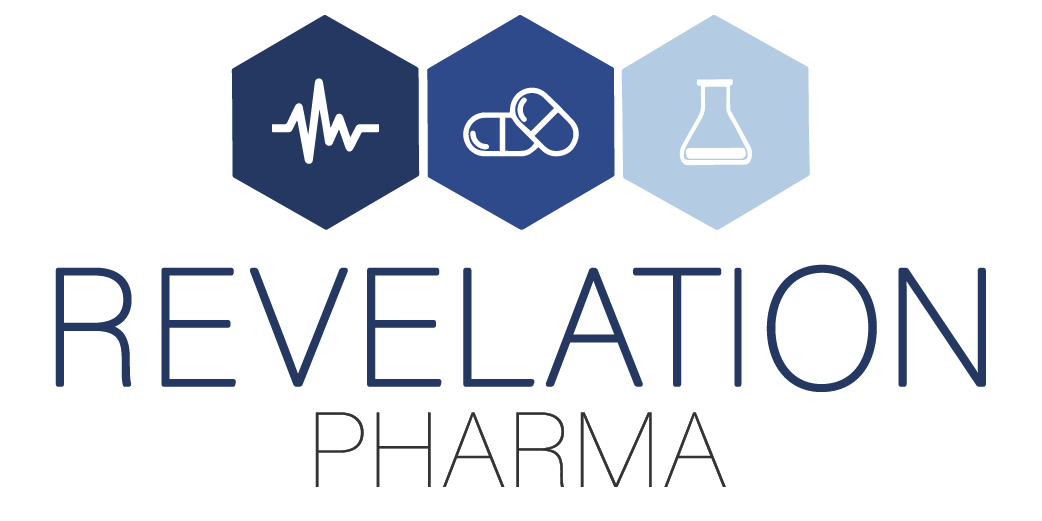
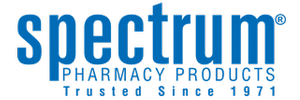



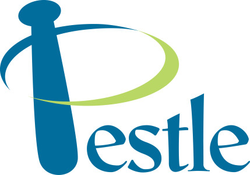

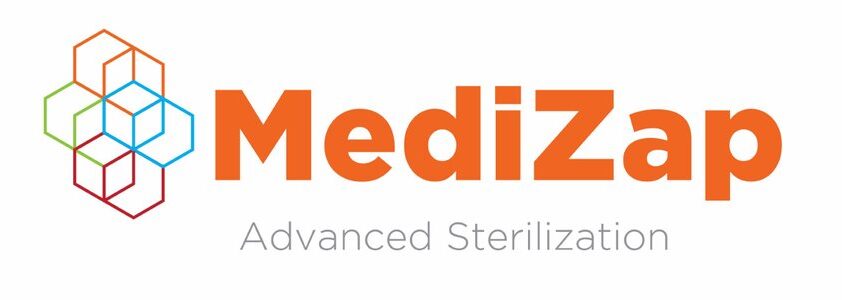

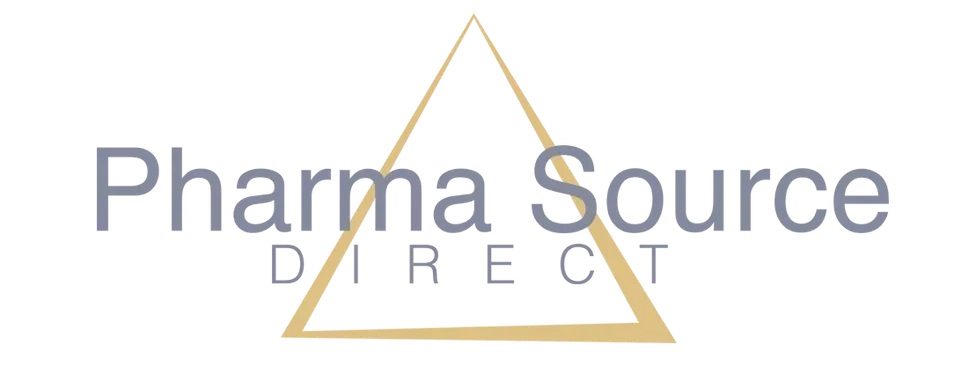
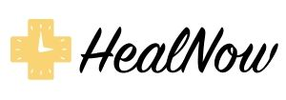
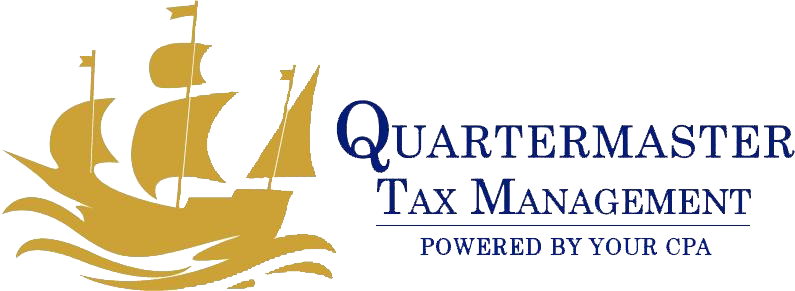


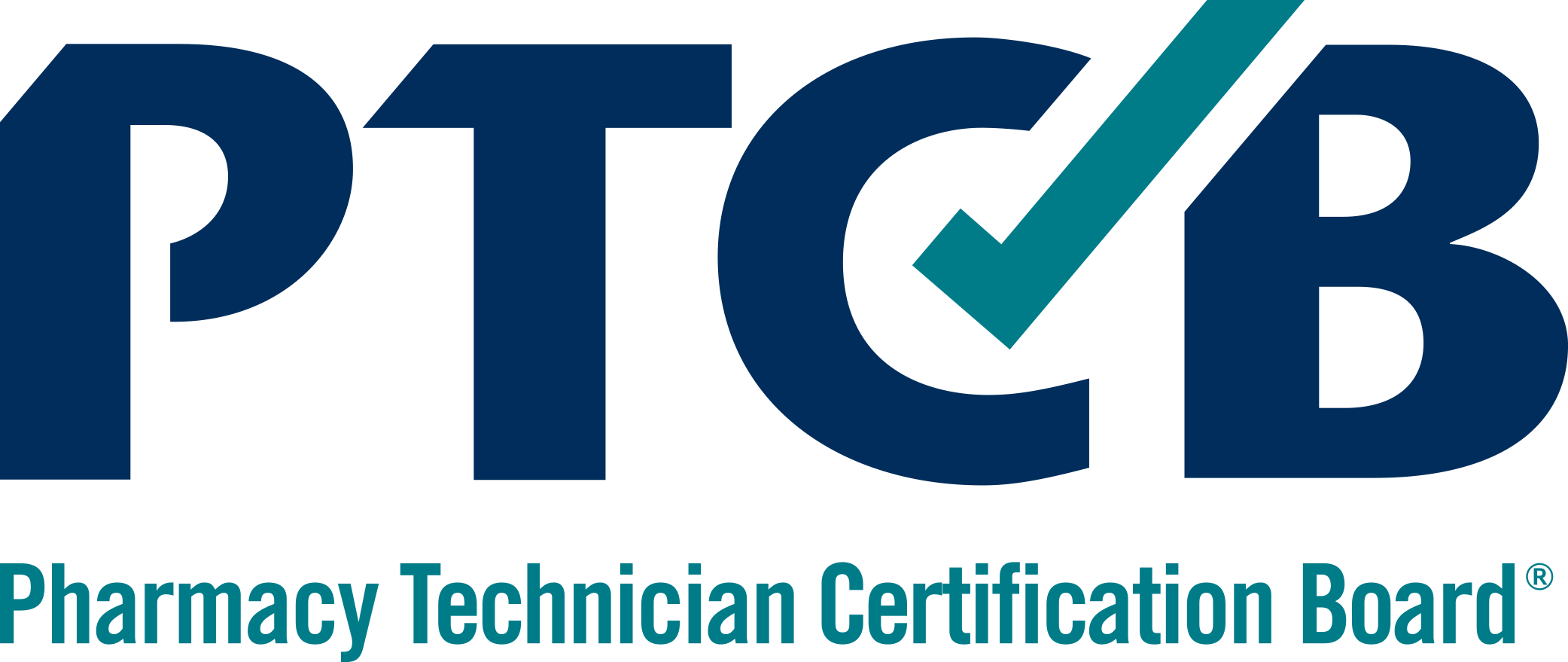
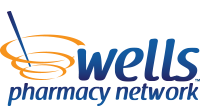
![Topi-CLICK a Division of TEAM Outlines[1]](https://a4pc.org/files/Topi-CLICK-a-Division-of-TEAM-Outlines1.png)




